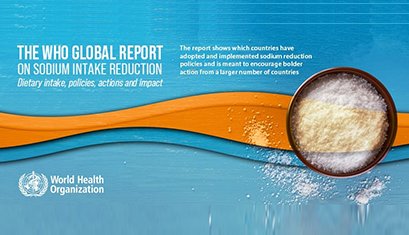The World Health Organisation (WHO) is approaching a new global adoption. They have issued new guidelines about low-sodium salt substitutes, by which they want to reduce excessive sodium consumption. This idea will help them control rising cardiovascular health issues among the masses.
If we talk about substitutes, these can work as a replacement because they partially replace sodium chloride with potassium chloride. This will help lower sodium and increase potassium levels in the body.
Excessive sodium intake can lead to high blood pressure, stroke, and many other heart-related diseases. Globally, people consume around 4.3 grams of sodium per day, which is double what WHO recommends. So this time, they are more serious about it and are passing new rules while encouraging people to use low-sodium salt alternatives.
Still, they advise kidney disease patients to consult with their doctor before including such substitutes in their diet. Even if they are healthier, they can backfire on some people with special conditions.
WHO also encourages companies to reduce the overall sodium amount by changing some practices. One can reformulate processed foods and implement clear food labelling for the same.
Overall, this recommendation is a call to action for policymakers and health professionals. Now, it is up to the industry how they take these guidelines and make a positive change.
News & Updates
dsm-firmenich, innovators in nutrition, health, and beauty, today announces …
FSSAI & Department of Agriculture, Fisheries and Forestry, Australia …
Since 2016, SÜDPACK has provided in-depth insights into its …
Socomec, a global leader in energy performance and power …
Leads Brand Connect, a leading advertising and brand marketing …
A large-scale Green Field integrated agro-processing project- fully automated …
In a remarkable achievement within just a month of …
The Goods and Services Tax (GST) Council has introduced …
Specialty chemicals company LANXESS India showcased its innovative Lewatit® …
TNA Solutions will showcase its tna conti-pro PEL 3 …



